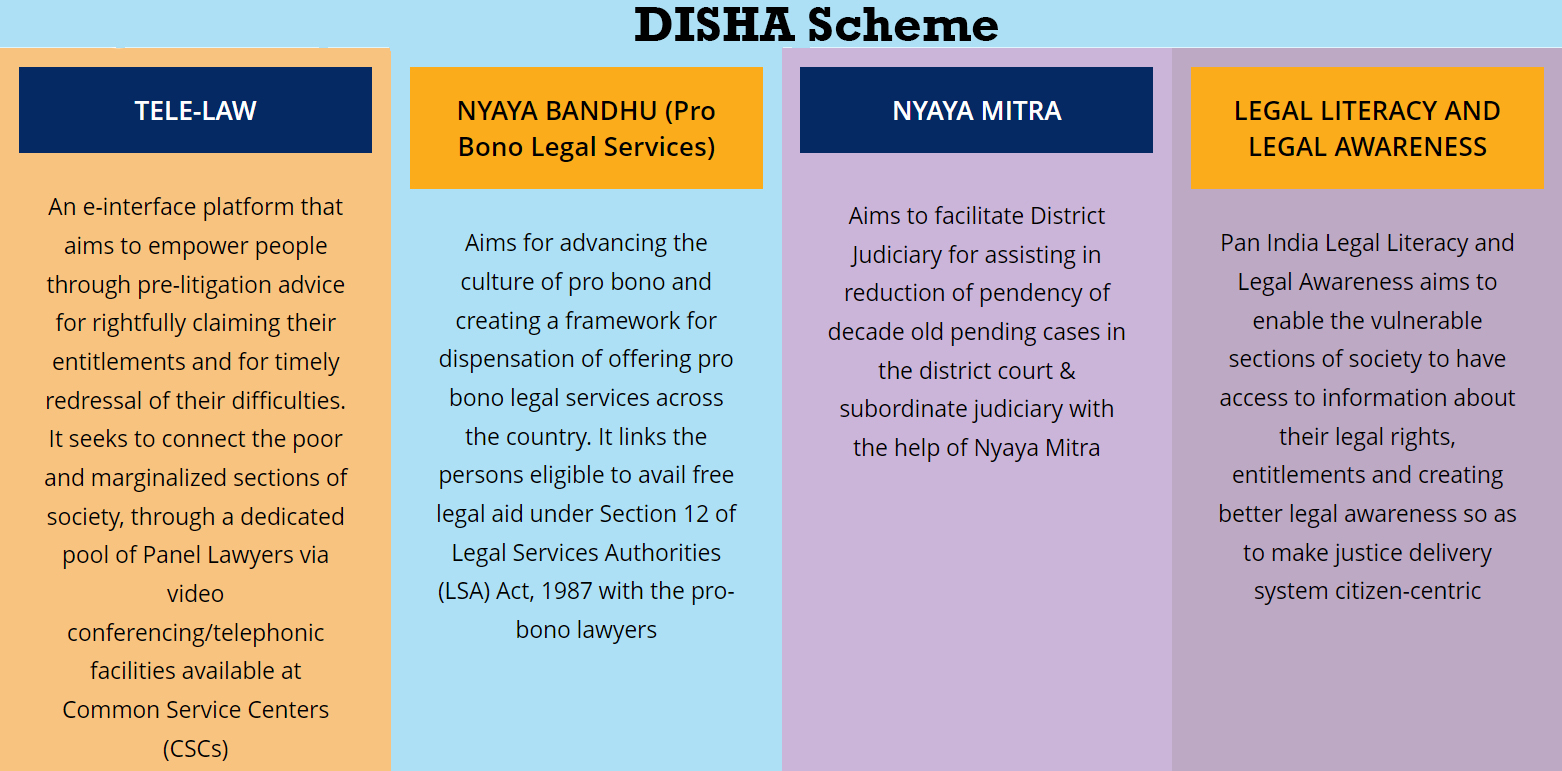Indian Polity
National Legal Services Authority
- 23 Jul 2022
- 5 min read
For Prelims: Legal Services Authorities Act of 1987, Lok Adalat, Article 39, Supreme Court
For Mains: National Legal Services Authority
Why in News?
Recently, the Minister of Law and Justice informed the details of funds allocated by NALSA (National Legal Services Authority) to Legal Services Authorities to organise Legal Aid Programmes in India.
What is NALSA?
- About:
- The NALSA was founded in 1995 under the Legal Services Authorities Act of 1987 to monitor and review the effectiveness of legal aid programs and to develop rules and principles for providing legal services under the Act.
- It also distributes funding and grants to state legal services authorities and non-profit organisations to help them execute legal aid systems and initiatives.
- Constitutional Provisions:
- Article 39A of the Constitution of India provides that State shall secure that the operation of the legal system promotes justice on a basis of equal opportunity, and shall in particular, provide free legal aid, by suitable legislation or schemes or in any other way, to ensure that opportunities for securing justice are not denied to any citizen by reason of economic or other disability.
- Articles 14 and 22(1) also make it obligatory for the State to ensure equality before law and a legal system which promotes justice on a basis of equal opportunity to all.
- Objectives of Legal Services Authorities:
- Provide free legal aid and advice.
- Spread legal awareness.
- Organise lok adalats.
- Promote settlements of disputes through Alternative Dispute Resolution (ADR) Mechanisms. Various kinds of ADR mechanisms are Arbitration, Conciliation, Judicial settlement including settlement through Lok Adalat, or Mediation.
- Provide compensation to victims of crime.
What are Legal Services Institutions at Various Levels?
- National Level: NALSA was constituted under the Legal Services Authorities Act, 1987. The Chief Justice of India is the Patron-in-Chief.
- State Level: State Legal Services Authority. It is headed by the Chief Justice of the State High Court who is its Patron-in-Chief.
- District Level: District Legal Services Authority. The District Judge of the District is its ex-officio Chairman.
- Taluka/Sub-Division Level: Taluka/ Sub-Divisional Legal Services Committee. It is headed by a senior Civil Judge.
- High Court: High Court Legal Services Committee
- Supreme Court: Supreme Court Legal Services Committee
Who is Eligible for Getting Free Legal Services?
- Women and children
- Members of SC/ST
- Industrial workmen
- Victims of mass disaster, violence, flood, drought, earthquake, industrial disaster.
- Disabled persons
- Persons in custody
- Those persons who have annual income of less than the amount prescribed by the respective State Government, if the case is before any court other than the Supreme Court, and less than Rs. 5 Lakhs, if the case is before the Supreme Court.
- Victims of Trafficking in Human beings or begar.
What are the Related Initiatives?
- Legal Service Mobile App:
- To enable equitable access to justice, NALSA has launched Legal Services Mobile App on Android and iOS versions to enable easy access to legal aid to common citizens.
- DISHA Scheme:
- Department of Justice (DoJ) has launched comprehensive, holistic, integrated and systemic solution on access to justice at pan India level through a scheme titled “Designing Innovative Solutions for Holistic Access to Justice (DISHA)” being implemented from 2021-26.
- All the Access to Justice Programmes have been merged under DISHA scheme and upscaled to all India level.
UPSC Civil Services Examination, Previous Year Questions (PYQ)
Q. With reference to National Legal Services Authority, consider the following statements: (2013)
- Its objective is to provide free and competent legal services to the weaker sections of the society on the basis of equal opportunity.
- It issues guidelines for the State Legal Services Authorities to implement the legal programmes and schemes throughout the country.
Which of the statements given above is/are correct?
(a) 1 only
(b) 2 only
(c) Both 1 and 2
(d) Neither 1 nor 2
Ans: (c)







